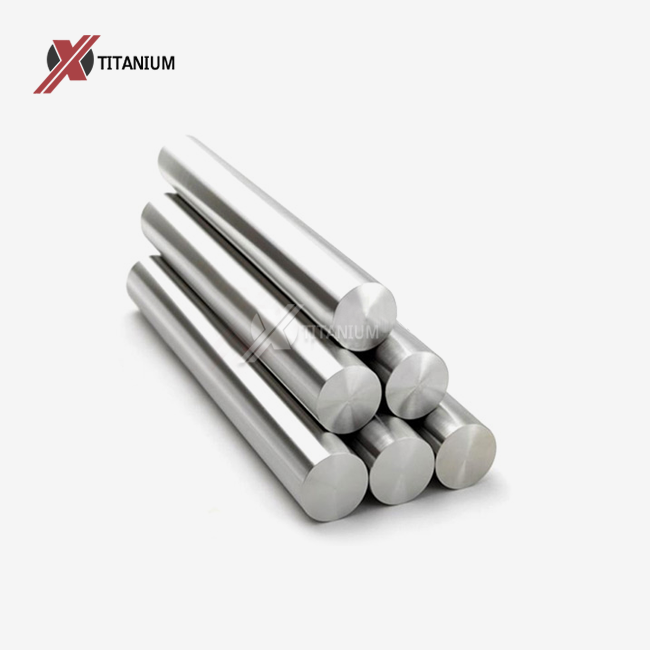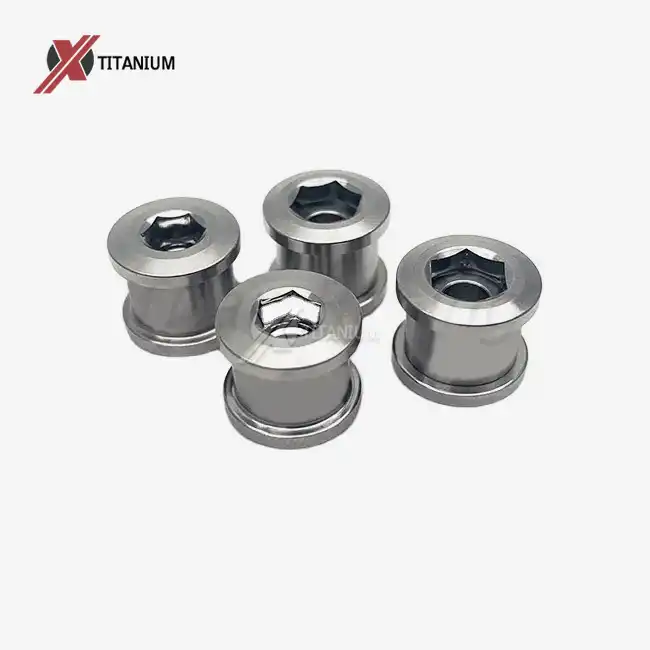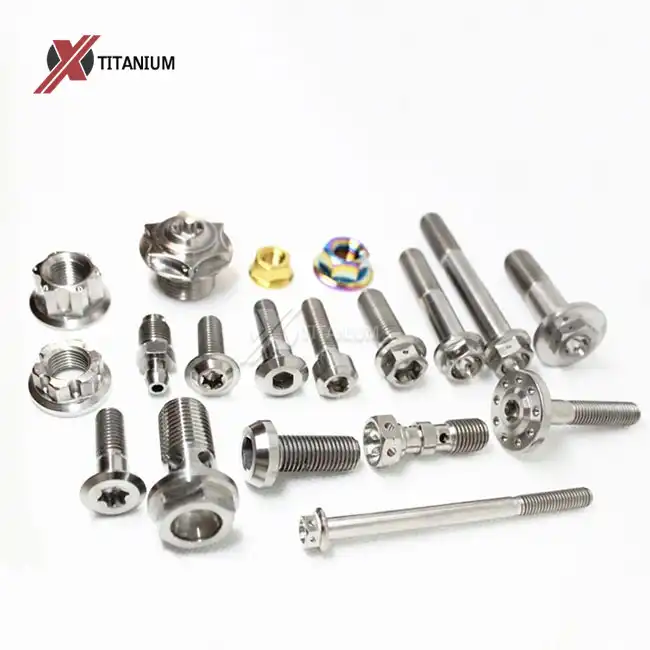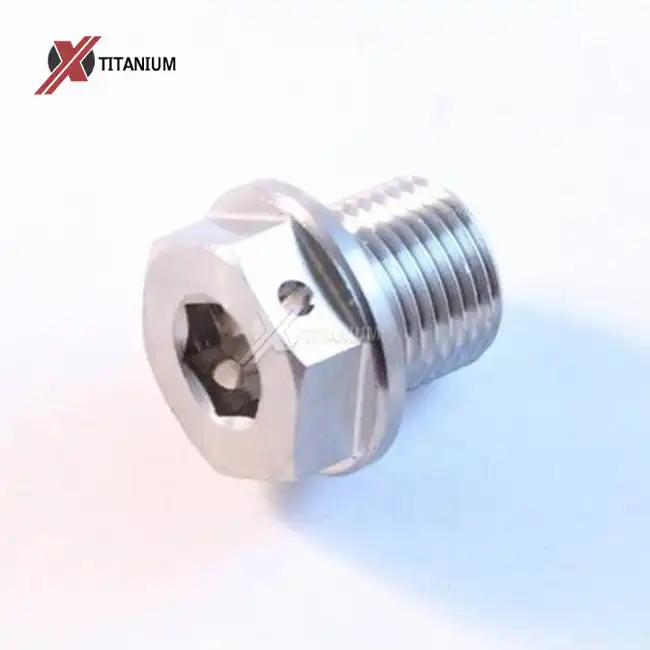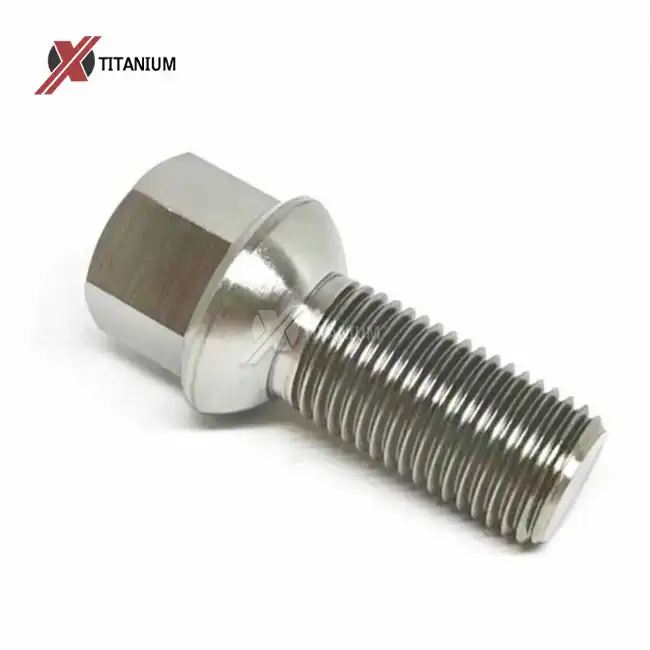The Science Behind Titanium's Corrosion Resistance
Understanding the Passive Layer Formation
The exceptional corrosion resistance of titanium stems from its ability to form a tenacious passive layer. This process, known as passivation, occurs spontaneously when titanium is exposed to oxygen. The resulting titanium dioxide (TiO2) film is merely a few nanometers thick but provides a formidable barrier against corrosive attacks.
The passive layer's effectiveness lies in its stability and rapid self-healing properties. When a scratch or damage occurs on a titanium surface, the exposed metal quickly reacts with oxygen to reform the protective oxide layer. This continuous regeneration ensures that titanium rods and other titanium products maintain their corrosion resistance throughout their service life.
Comparing Titanium and Steel Corrosion Mechanisms
While both titanium and steel can form passive layers, the stability and protective nature of these layers differ significantly. Steel's passive film, primarily composed of iron oxides, is less stable and more prone to breakdown in corrosive environments. In contrast, titanium's oxide layer is highly stable across a wide range of pH levels and temperatures.
In chloride-containing environments, such as seawater, the difference becomes even more pronounced. Steel's passive layer can be easily penetrated by chloride ions, leading to pitting corrosion. Titanium, however, remains resistant to pitting in most chloride solutions, making titanium rods an excellent choice for marine applications.
Electrochemical Nobility of Titanium
Titanium's position in the galvanic series contributes to its corrosion resistance. It is more noble (cathodic) than many common metals, including steel. This means that in a galvanic couple, titanium is less likely to corrode, as it becomes the cathode in the electrochemical reaction. This property is particularly advantageous when using titanium rods in mixed-metal assemblies or in environments where galvanic corrosion is a concern.
Applications Leveraging Titanium's Corrosion Resistance
Marine and Offshore Industries
The marine environment is notoriously harsh on metals, with constant exposure to saltwater and varying temperatures. Titanium rods excel in these conditions, making them ideal for offshore oil and gas platforms, desalination plants, and marine research equipment. Their resistance to saltwater corrosion ensures longevity and reliability in critical marine structures.
Chemical Processing and Manufacturing
In chemical processing plants, where exposure to aggressive chemicals is common, titanium rods prove invaluable. They are used in heat exchangers, reaction vessels, and piping systems where conventional materials would quickly degrade. The inertness of titanium in many chemical environments allows for longer equipment life and reduced maintenance costs.
Aerospace and Aviation
The aerospace industry heavily relies on titanium's corrosion resistance combined with its high strength-to-weight ratio. Titanium rods are utilized in aircraft structural components, engine parts, and fasteners. Their ability to withstand the corrosive effects of high-altitude environments and jet fuels contributes to the safety and longevity of aircraft.
Biomedical Implants
The human body presents a unique corrosive environment. Titanium's exceptional biocompatibility and corrosion resistance make it the material of choice for many medical implants. Titanium rods are commonly used in orthopedic and dental applications, where they can remain in the body for decades without degradation or adverse reactions.
Enhancing Titanium's Corrosion Resistance
Surface Treatments and Coatings
While titanium naturally possesses excellent corrosion resistance, various surface treatments can further enhance this property. Anodizing, for instance, can thicken and stabilize the oxide layer on titanium rods, providing even greater protection against corrosion. Other treatments like nitriding or physical vapor deposition (PVD) coatings can impart additional resistance to specific types of corrosion or wear.
Alloying for Improved Performance
Alloying titanium with other elements can tailor its properties for specific applications. For example, adding small amounts of palladium or ruthenium can significantly improve titanium's resistance to reducing acids. These alloyed titanium rods find use in extremely corrosive industrial environments where even pure titanium might struggle.
Heat Treatment and Microstructure Control
The microstructure of titanium has a substantial impact on its corrosion behavior. Proper heat treatment can optimize the grain structure and phase composition of titanium rods, enhancing their resistance to stress corrosion cracking and other forms of localized corrosion. This is particularly important in high-stress applications where mechanical properties must be balanced with corrosion resistance.
Conclusion
Titanium's superior corrosion resistance compared to steel is a result of its unique ability to form a stable, self-healing passive layer. This property, combined with its high strength-to-weight ratio and biocompatibility, makes titanium rods an invaluable material across various industries. From marine environments to chemical processing plants, aerospace applications, and medical implants, titanium continues to prove its worth in corrosive conditions where other materials fail. As material science advances, further enhancements in surface treatments, alloying, and heat treatments promise to expand the already impressive capabilities of titanium in resisting corrosion.
At Baoji Chuanglian New Metal Material Co., Ltd., we specialize in manufacturing high-quality titanium rods that leverage these exceptional corrosion-resistant properties. As a reliable titanium rods manufacturer, we are committed to delivering products that meet the highest standards of durability and performance. Our expertise in titanium products ensures that we can meet the diverse needs of industries requiring superior corrosion resistance. Whether you're in aerospace, chemical processing, or medical device manufacturing, our titanium rods offer the performance and reliability you need. For more information or to discuss your specific titanium rod requirements, please contact us at info@cltifastener.com or djy6580@aliyun.com.
FAQ
What surface finishes are available for titanium rods?
We offer various surface finishes including bright, polished, pickled, acid cleaned, and sandblasted surfaces to meet different application requirements.
What quality tests do titanium rods undergo?
Our titanium rods undergo rigorous quality testing, including hardness tests, bending tests, and hydrostatic tests to ensure they meet the highest standards.
What are the key features of titanium rods?
Titanium rods are known for their high corrosion resistance, low density, and good thermal stability, making them ideal for various industrial and sports applications.
References
1. Schutz, R. W., & Thomas, D. E. (1987). Corrosion of titanium and titanium alloys. ASM Handbook, 13, 669-706.
2. Revie, R. W., & Uhlig, H. H. (2008). Corrosion and corrosion control: an introduction to corrosion science and engineering. John Wiley & Sons.
3. Boyer, R., Welsch, G., & Collings, E. W. (1994). Materials properties handbook: titanium alloys. ASM international.
4. Donachie, M. J. (2000). Titanium: a technical guide. ASM international.
5. Lütjering, G., & Williams, J. C. (2007). Titanium (engineering materials and processes). Springer Science & Business Media.
